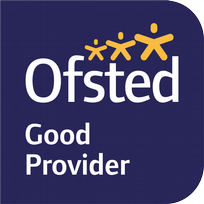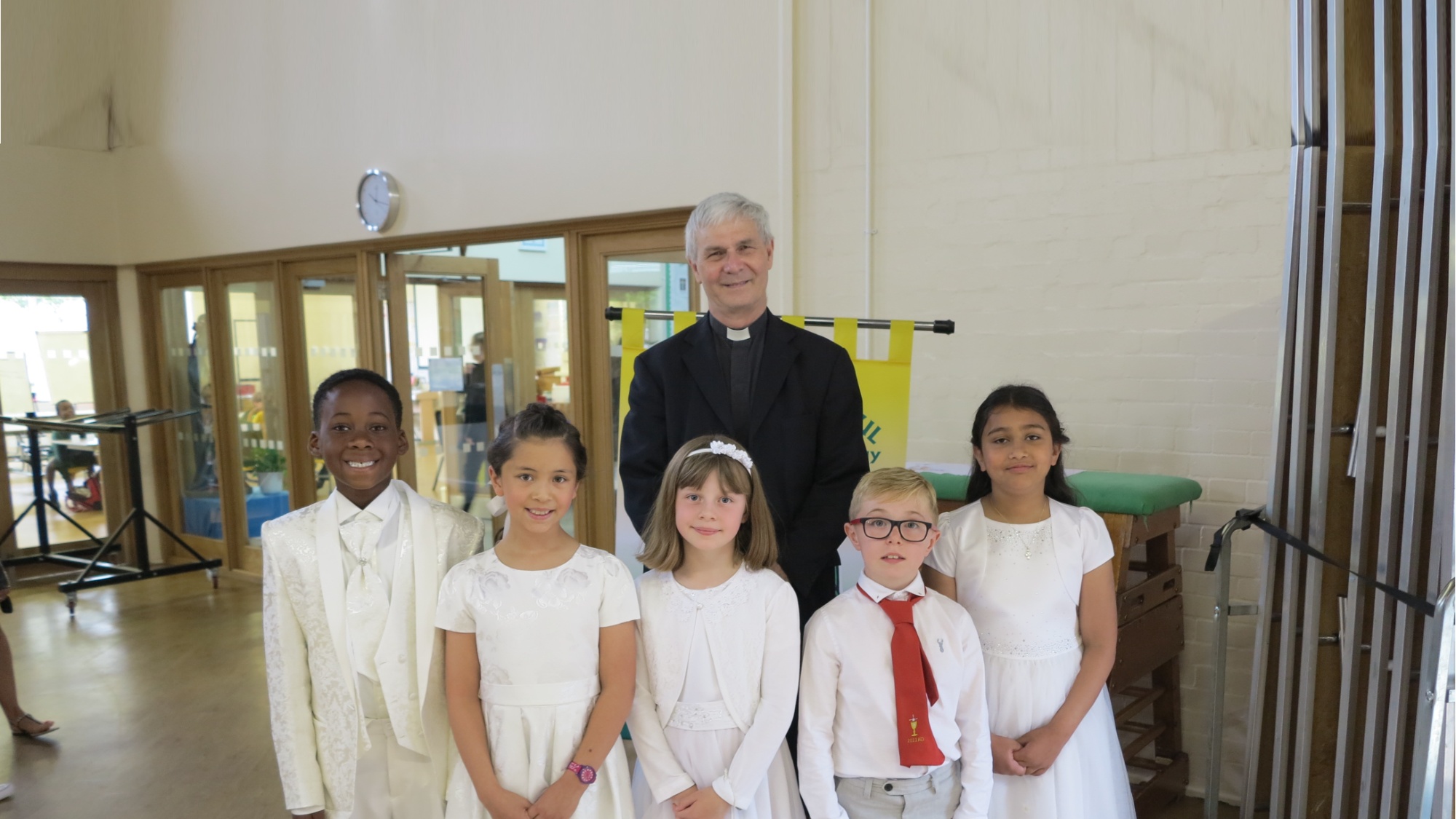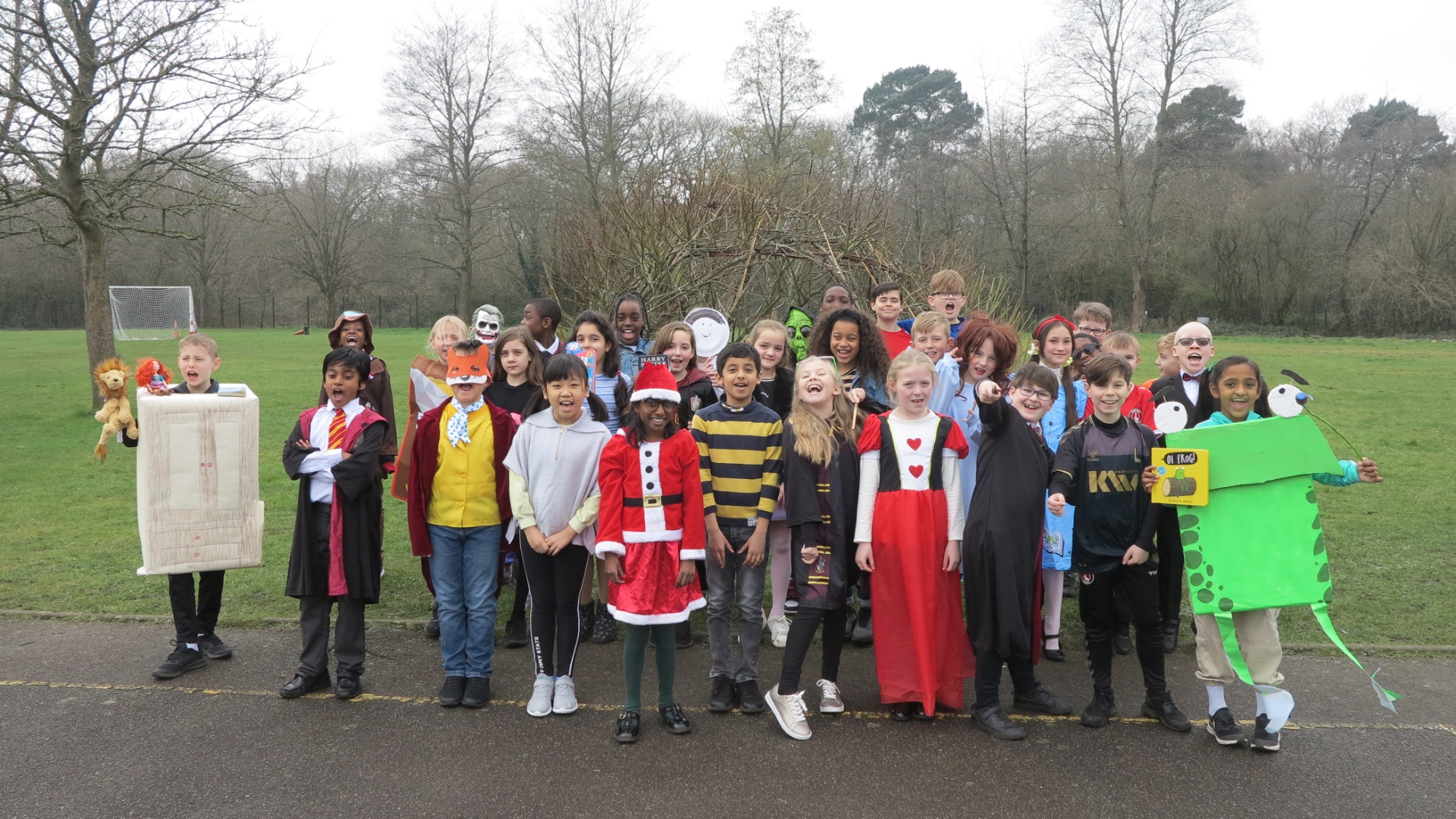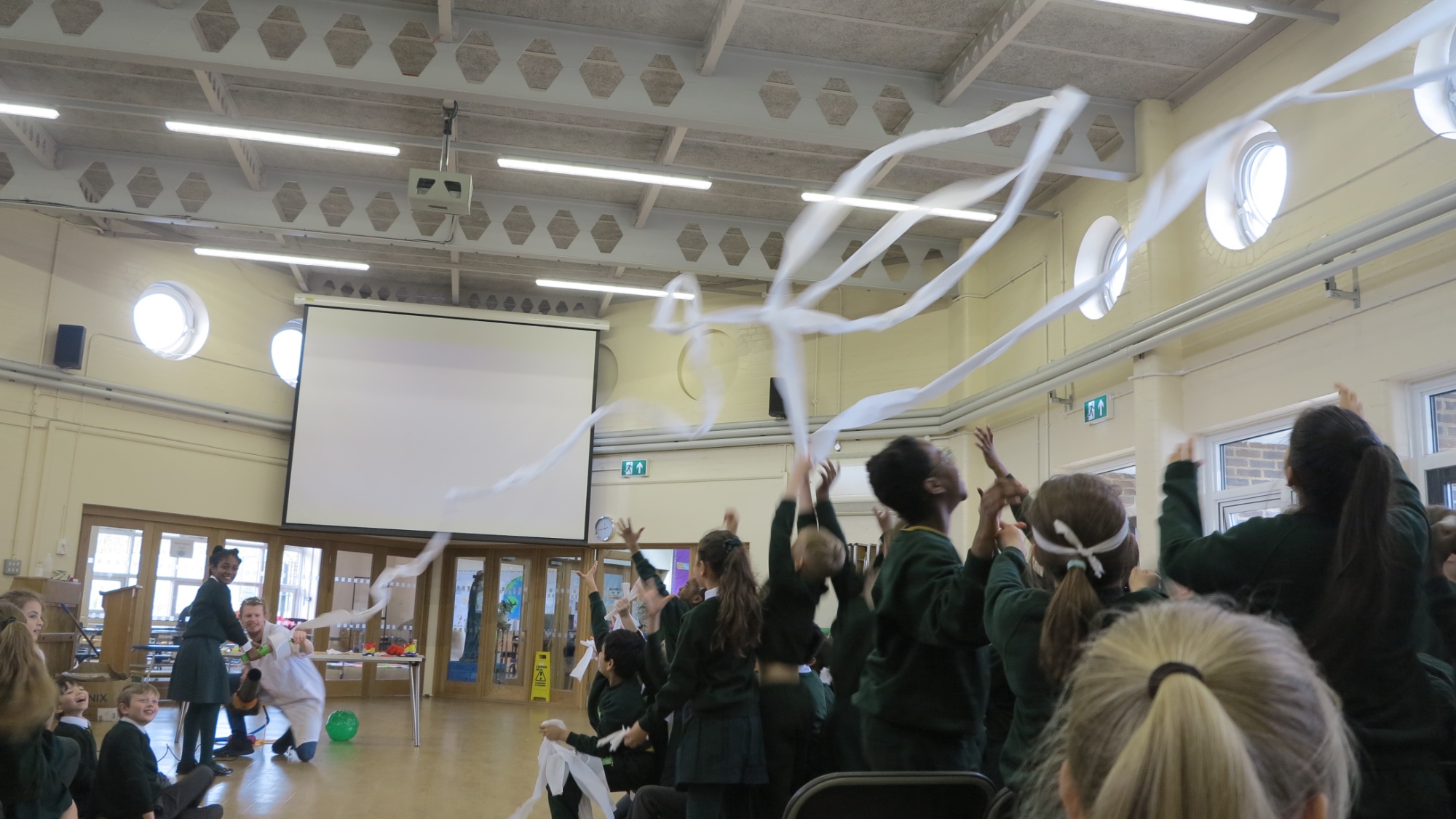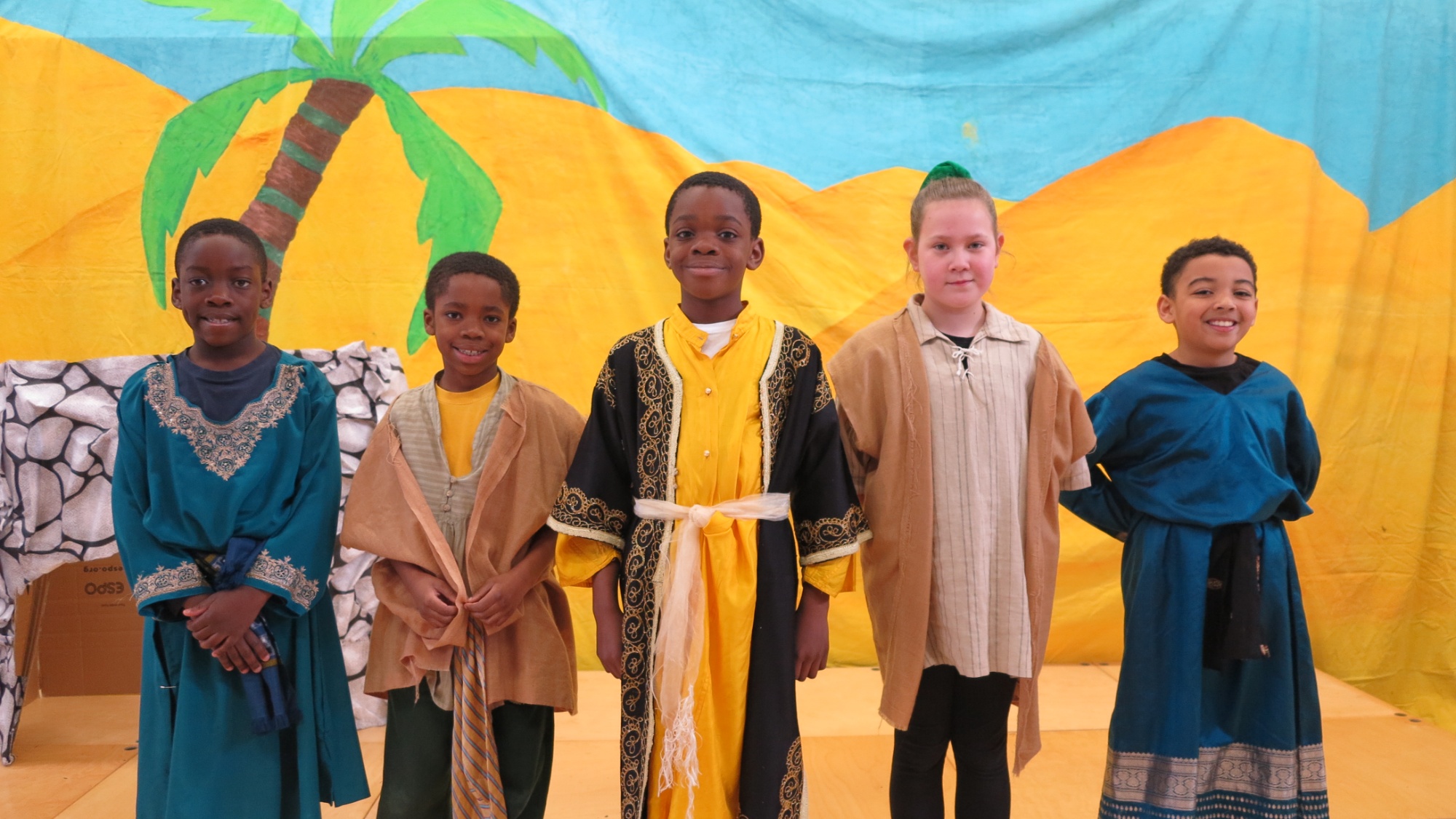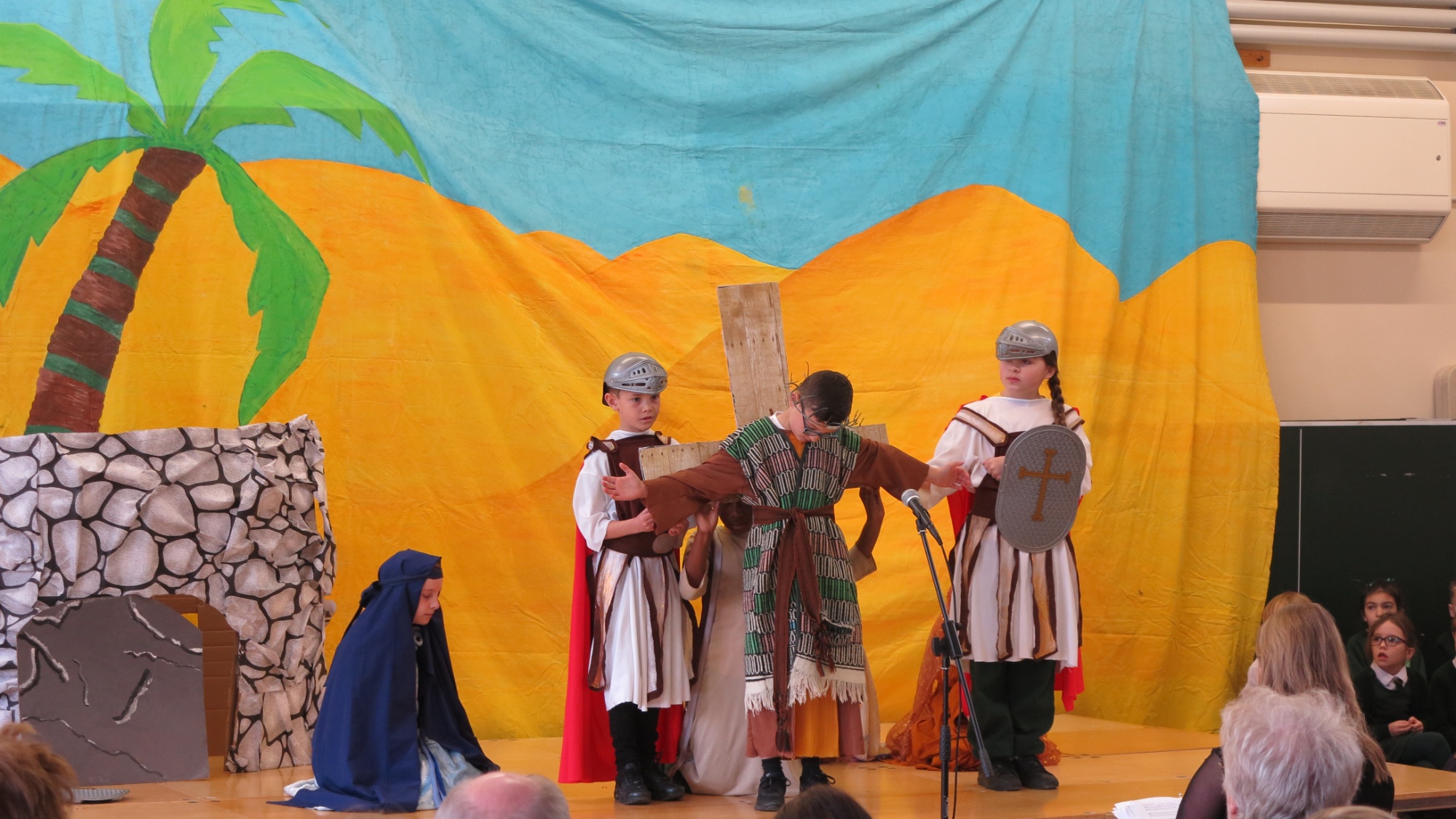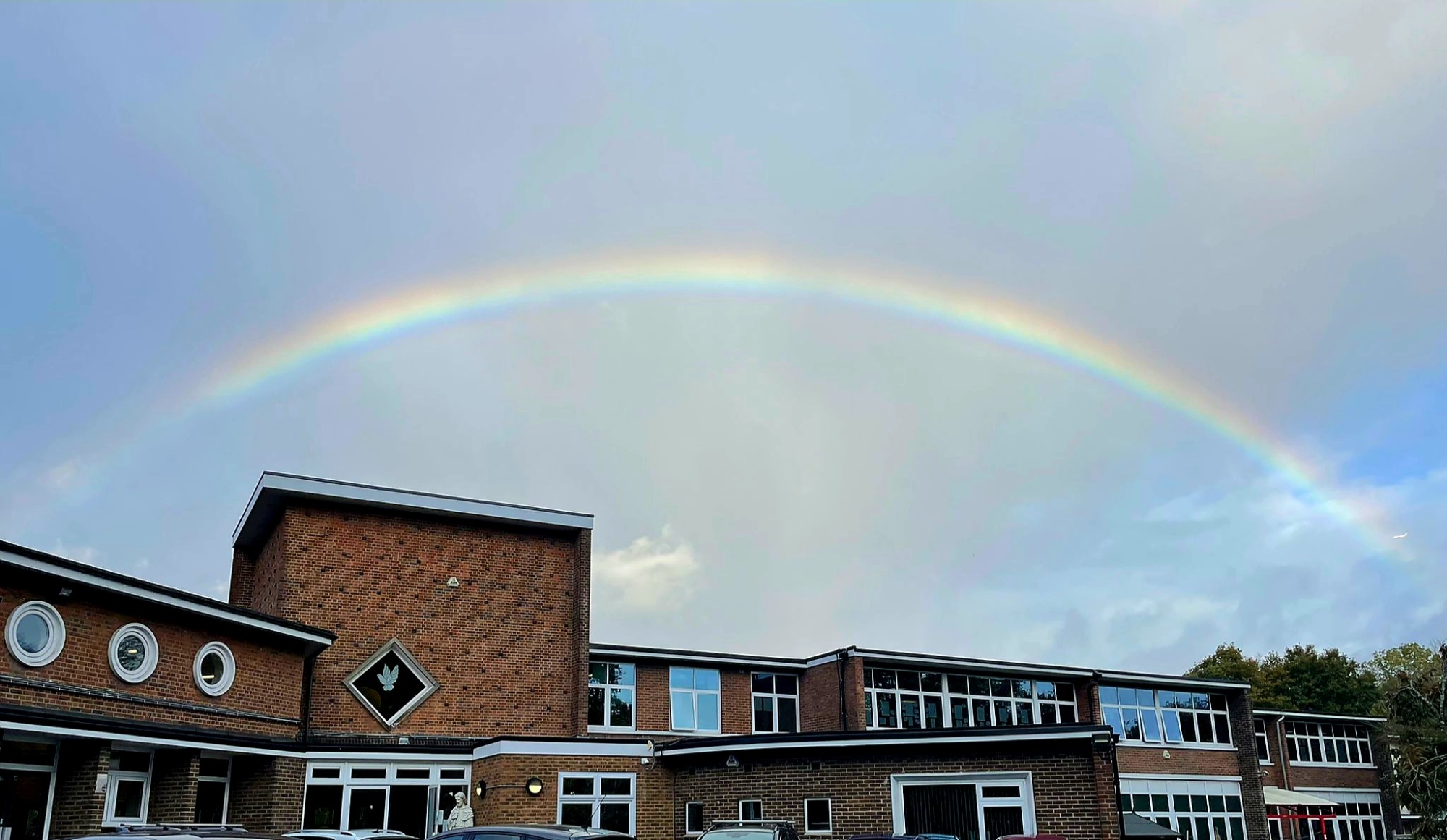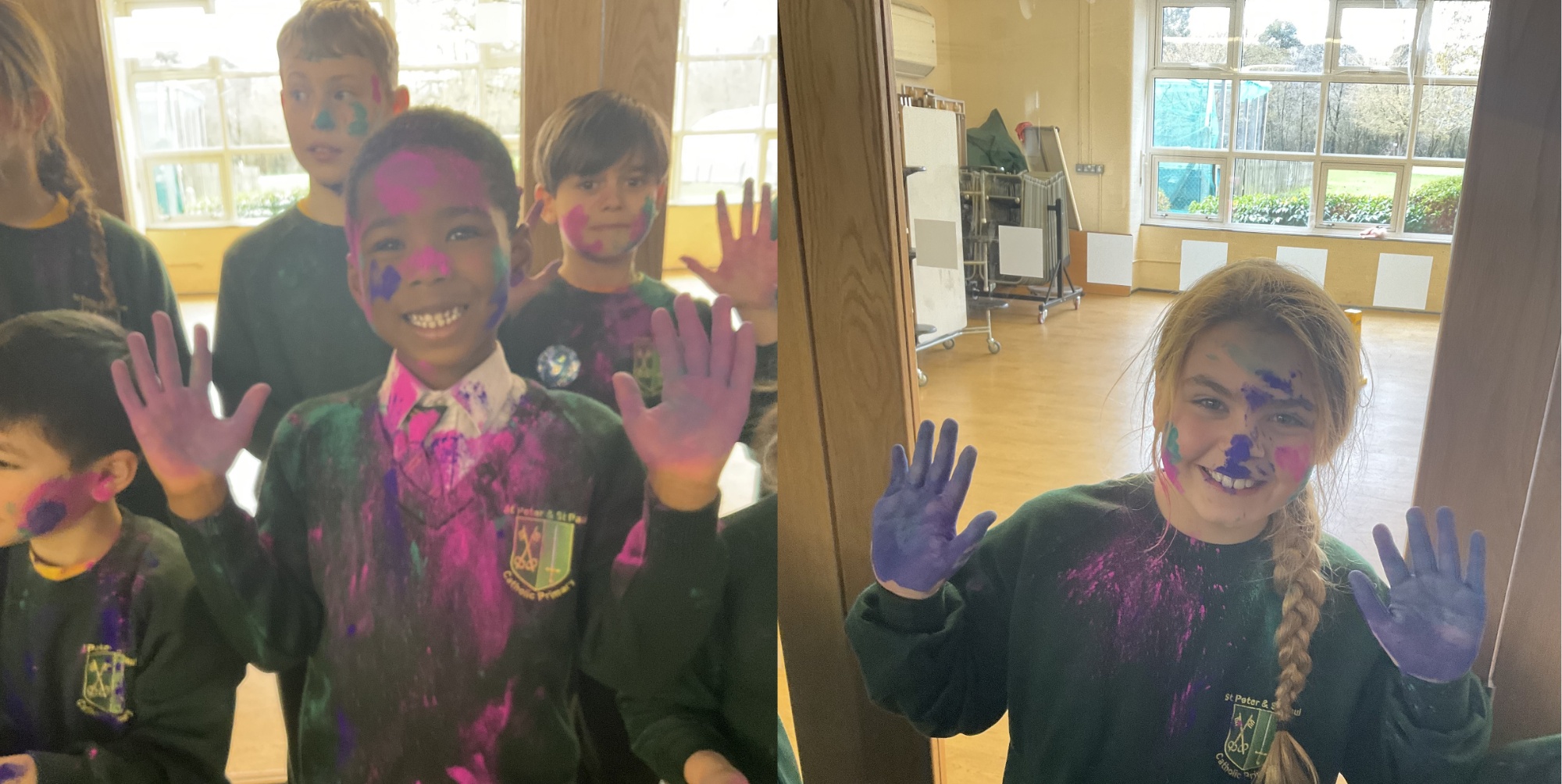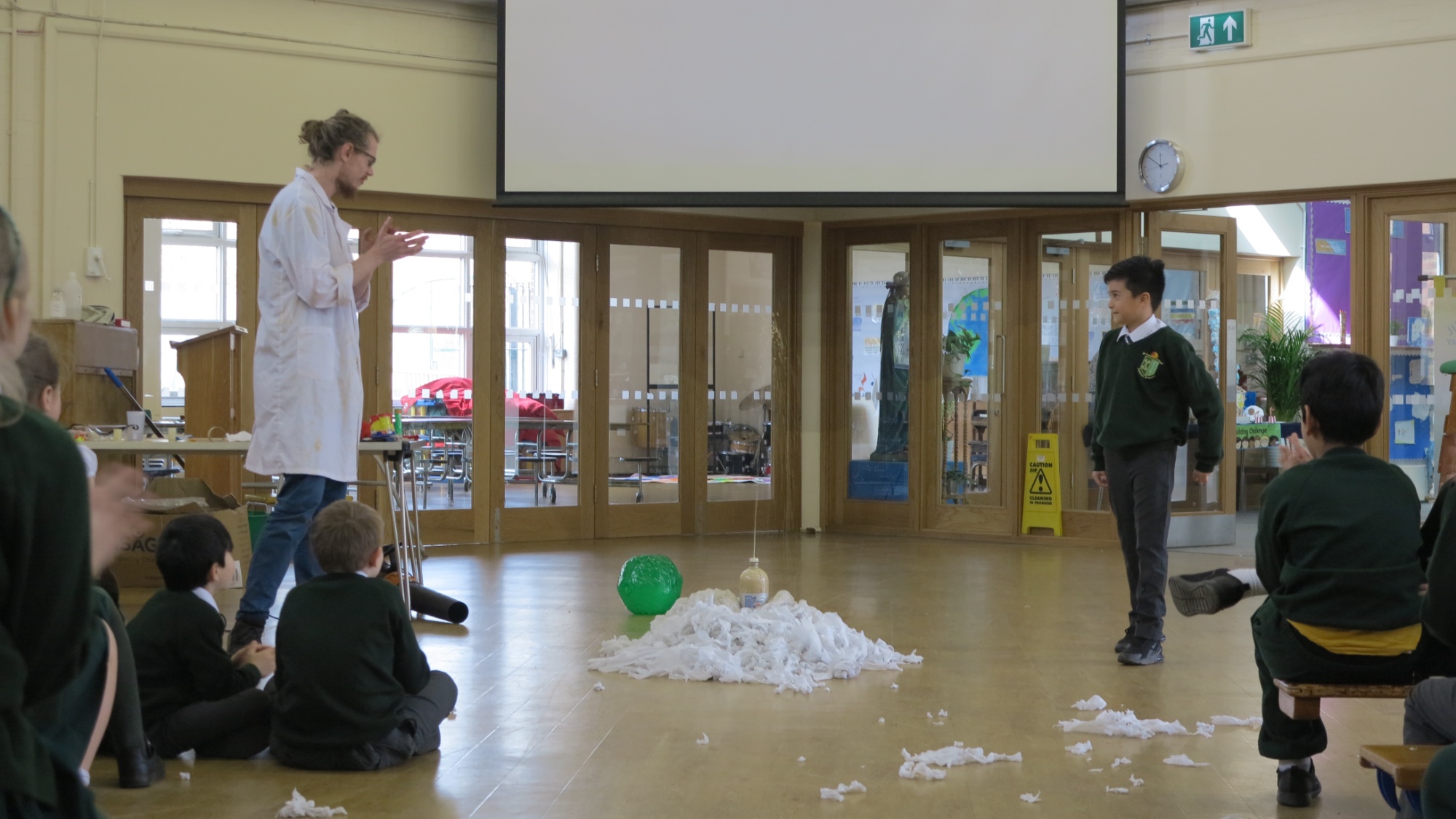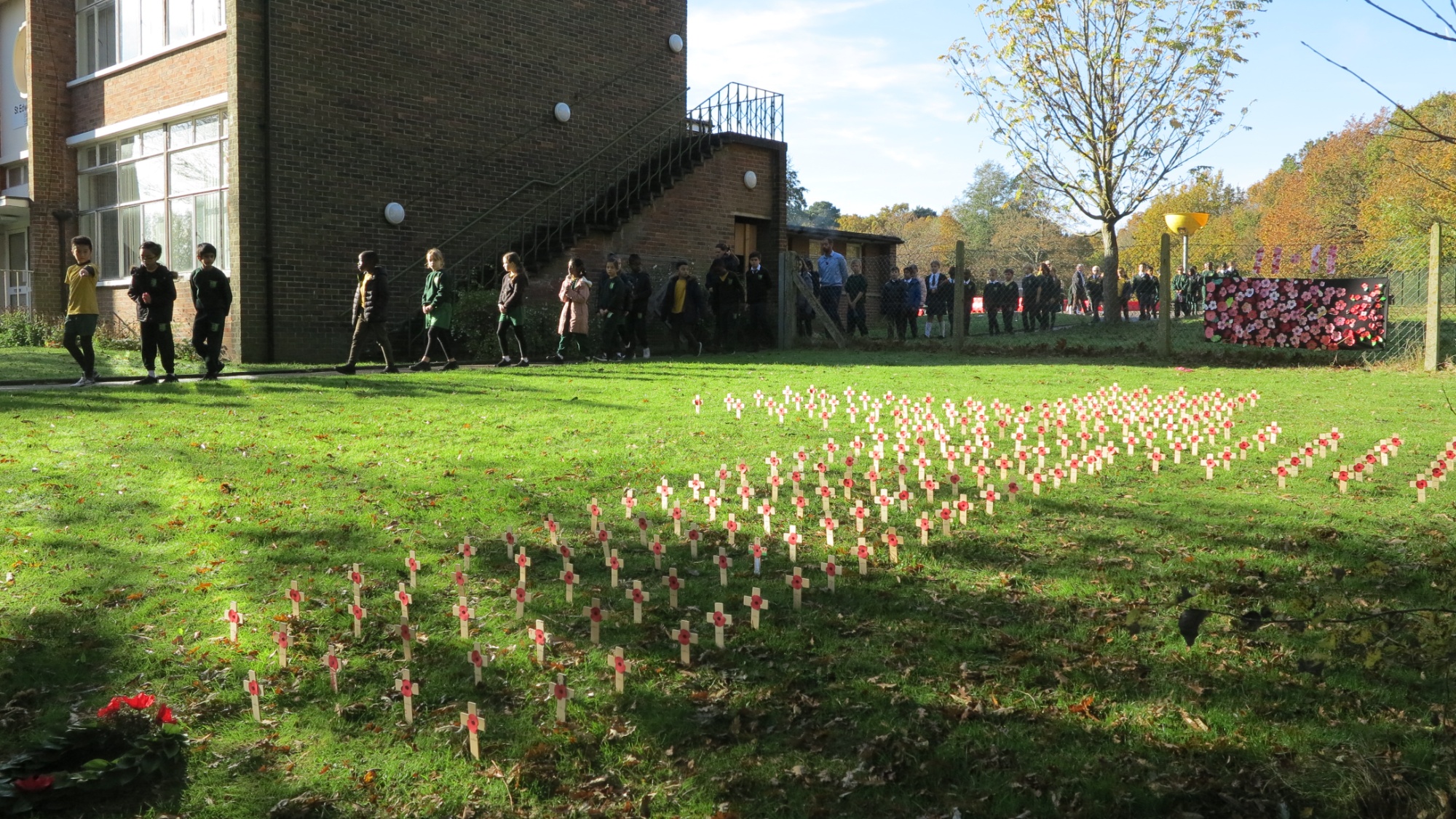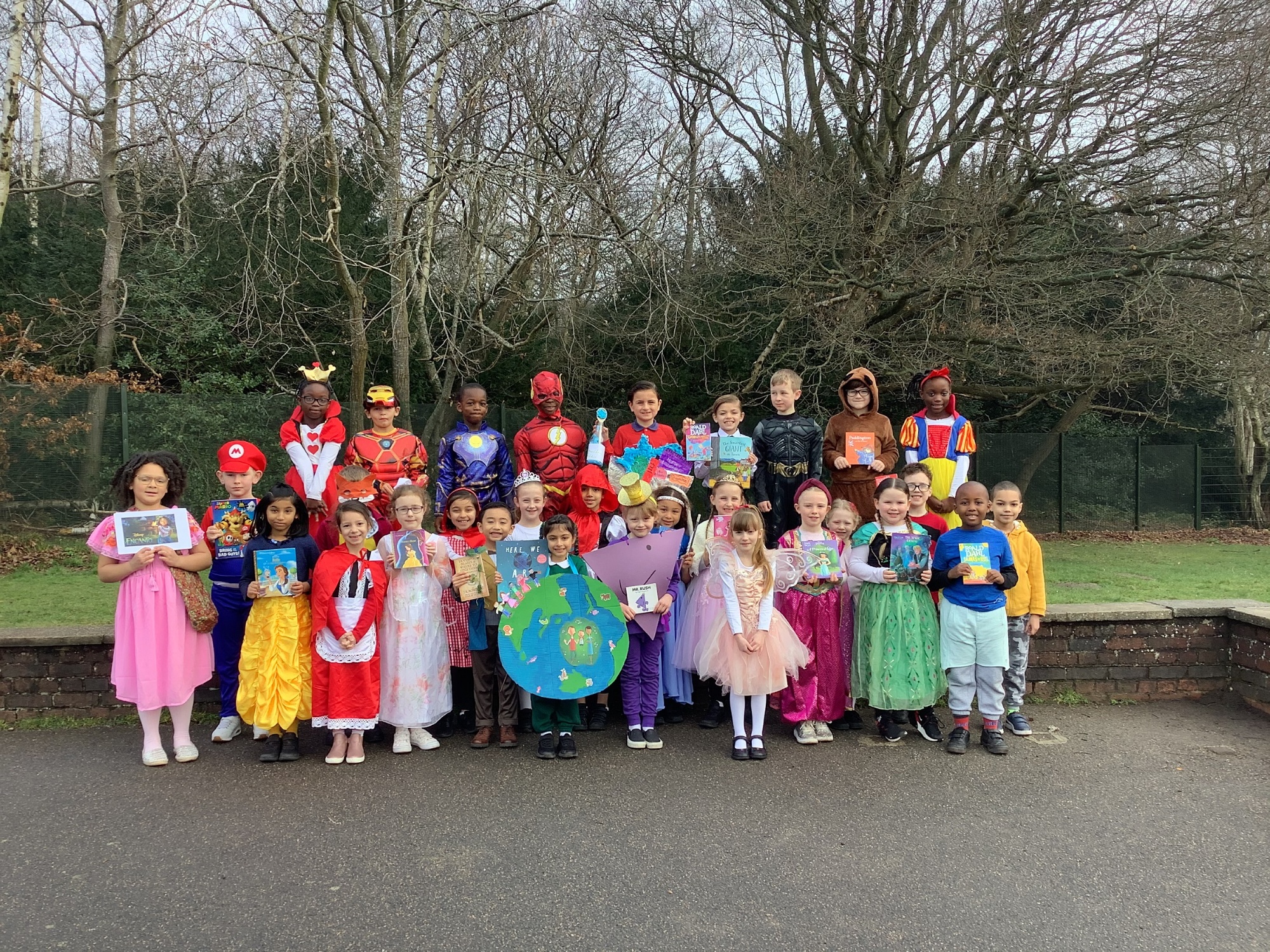EYFS
Every Child Matters
The Statutory framework for the Early Years Foundation Stage sets the standards for
learning, development and care for children from birth to 5 years.
Intent
At St Peter and St Paul Catholic Primary Academy, our aim is to create a happy learning environment that makes every child want to come to school everyday! We build relationships which support, enhance and encourage a child’s curiosity and confidence.
We aim to work in collaboration with Parents and Carers to help their child thrive at school and reach their full potential. It is our intent that children begin their learning journey here and flourish by having a wide range of experiences to help them develop physically, verbally, cognitively and emotionally. We have educational programmes that provide rich and engaging learning opportunities to help excite and motivate the children as learners.
It is our intent that every child makes progress at St Peter and St Paul Catholic Primary Academy. We take into consideration the children’s starting points and their individual needs. The children’s interests and needs are at the heart of our curriculum. We plan and provide enriching activities that support the children’s development across the seven areas of learning. Our enabling environments and warm, skilful adult interactions support the children as they begin to link learning to their play and exploration right from the start.
Throughout the year, the children have access to a broad and balanced curriculum that prepares them for their future educational journey. We provide a curriculum that maximises opportunities for meaningful cross-curricular links and learning experiences, as well as promoting the unique child by offering extended periods of play and sustained thinking.
Our intent is to teach children to self-regulate and successfully manage their emotions.
As an Academy, we have core values and principles which we expect all children to demonstrate:
- Courtesy
- Co-operation
- Consideration
- Common sense
By the end of the year, our intent is to ensure that all children make at least good progress from their starting points. We want the children to have the skills and knowledge needed to ensure a smooth transition into Year 1.
Implementation
We follow the Early Years Foundation Stage framework. This is made up of four overriding principles which our early years education is based upon:
*Unique Child – Every child is unique child who is constantly learning and can be resilient, capable, confident and self-assured
*Positive Relationships – Children learn to be strong and independent through positive relationships
*Enabling Environments – Children learn and develop well in enabling environments, in which their experiences respond to their individual needs and there is a strong partnership between practitioners and parents and carers
*Learning and Development – Children develop and learn in different ways. The framework covers the education and care of all children in early year’s provision, including children with special educational needs and disabilities
We have a curriculum that is child-centred and largely follows a ‘teaching in the moment’ approach. The adults move to where the children are engaged and interact with them as they play, making the most of the children’s natural desire to explore and enhance the learning whenever a “teachable moment” is spotted.
The children benefit from meaningful learning across the curriculum and staff plan resourcefully for opportunities for communication, sustained shared thinking and physical challenge to build on existing skills taking into account the Characteristics of Effective Learning. These are:
*Playing and Exploring – children investigate and experience things, and have a go
*Active Learning – children concentrate and keep on trying if they encounter
difficulties, and enjoy achievements
*Creating and Thinking Critically – children have and develop their own ideas, make links between ideas and develop strategies for doing things
The learning experiences within our Early Years are linked to the seven areas of learning and development within the EYFS. These areas are split into three prime areas and four specific areas. The three prime areas are those which the children should develop first and are considered most essential for the healthy development and future learning of our children.
Prime Areas:
*Personal, Social and Emotional Development
*Communication and Language
*Physical Development
As children grow and make progress in the prime areas, this will help them to naturally develop skills within the four specific areas.
Specific Areas:
*Literacy
*Mathematics
*Understanding the World
*Expressive Arts and Design
Every half-term we have a new and exciting topic that provides inspiration for learning, whilst providing the flexibility for children to follow their own interests and ideas.
Children learn through a balance of adult-led and child-initiated activities.
The timetable is carefully structured so that children have directed teaching during the day. This timetable changes to meet the changing needs of the children. Lessons are followed by small focused group work. This enables the teacher to check for understanding, identify and respond to misconceptions and provide feedback. The children have lots of opportunities to engage in ‘exploration’ throughout the variety of experiences carefully planned to engage and challenge them in the provision. The curriculum is planned for the inside and outside classrooms and equal importance is given to learning in both areas.
We regularly assess where the children are, using ‘Development Matters’ and then ensure our planning, adult interactions and enabling learning environments; including continuous provision, support children to reach their next steps. We will plan and deliver interventions for groups or individuals if and when necessary. A vital aspect in the development of essential knowledge and skills is the use of continuous provision. This means that children are using and developing taught skills throughout the year on a daily basis.
Impact
Prior to children starting, we have a ‘Meet the Teacher’ day and staff spend time speaking to the child’s parents to gain an understanding of the whole child and where they are at. During the first half term, all staff use observations and conversations with the child to develop a baseline assessment. This identifies each individual’s starting points in all areas so we can plan experiences to ensure progress. Additionally, the RBA
(Statutory Reception Baseline Assessment) is carried out in the first half of the Autumn term. This assessment focuses on ‘Language, Communication and Literacy,’ and ‘Mathematics.’ The purpose of this is to show the progress children make from Reception until the end of KS2.
We strive to ensure that our children’s progress across the EYFS curriculum is good from their varied starting points, that children reach the Early Learning Goals at the end of the year and are at least in line with National Expectations.
Evidence in the children’s books and learning journals support all areas of the EYFS curriculum. We understand that when assessing children against the Early Learning Goals, there will be children who are awarded the same level but who are working at differing stages within that level. Effective communication between staff is therefore essential to achieve an effective transition for every child and to plan accordingly for the next stage of their learning journey.
All observations are used to inform weekly planning and identify children’s next steps. ‘In the Moment’ planning gives us spontaneity to follow the interests of the children.
Practitioners draw on their knowledge of the child and their own expert professional judgements through discussions with other practitioners, photographs and physical examples such as a child’s drawing. Observations are uploaded using Evidence Me and examples are kept in individual learning journals.
Phonic assessments are carried out regularly to identify pupils that are not making expected progress. Our aim is for children to ‘keep up’ rather than ‘catch up’ where possible. In the Summer Term, the EYFSP is completed where the teacher judges whether the child has met each of the 17 Early Learning Goals. They will be assessed as either ‘emerging’ or ‘expected.’
The impact of our curriculum will also be measured by how effectively it helps our pupils develop into well rounded, resilient and motivated individuals who embody our values and carry with them the knowledge, skills and attitudes which will make them lifelong learners.

